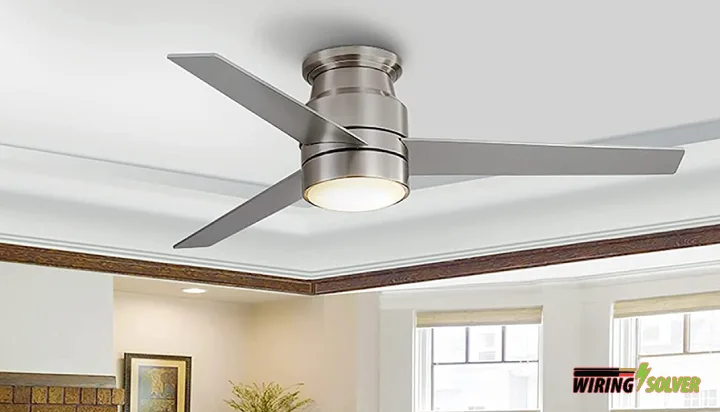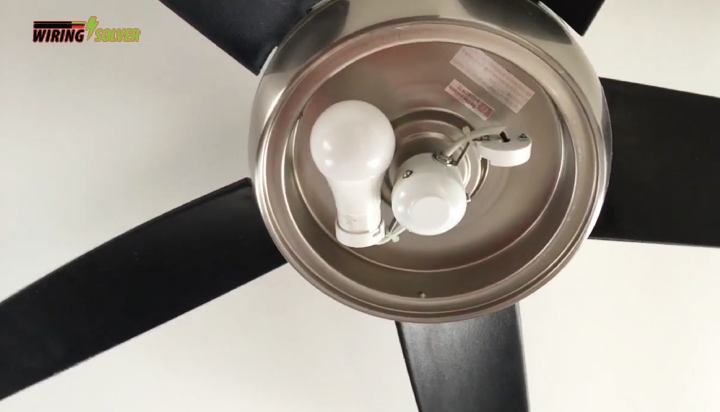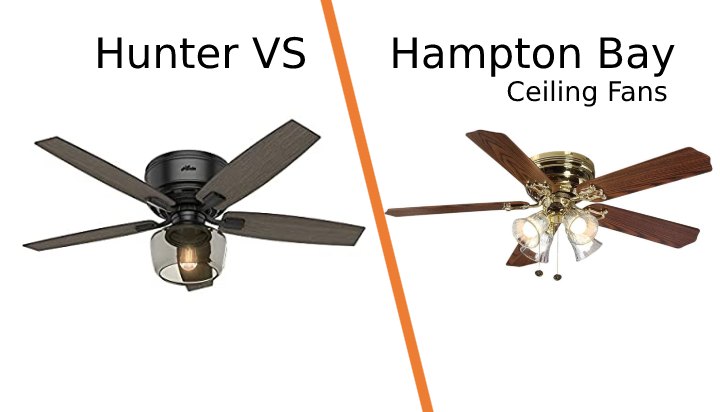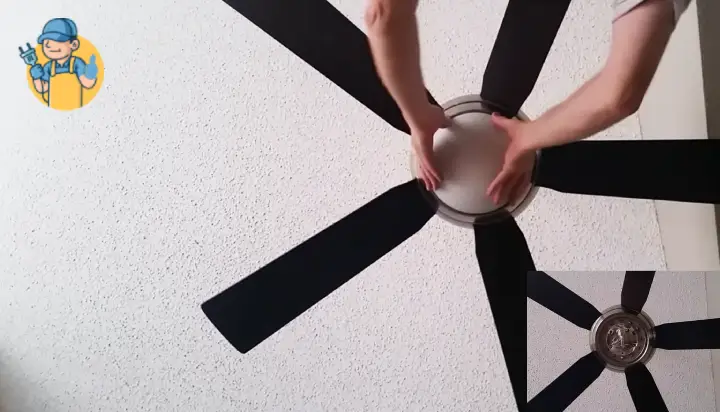Although very rare, there have been numerous cases all over the world regarding ceiling fans falling on people. So, it is quite natural to ask the question, is there a chance of a fan falling on you?
Statistically speaking, there is a 1.7% chance that any ceiling fan will fall on you. As the probability is very low, a working, properly installed ceiling fan is not very likely to fall on you. However, the percentage will vary if the fan is not properly installed.
This article will go through various factors and elements behind the safety of a ceiling fan. So, sit tight.

How Much Does a Ceiling Fan Weigh?
GFCI A ceiling fan can weigh from 8 lbs. to 50 lbs. There are various types of ceiling fans available in the market. The sizes of them also vary. With the increase in the size of a fan, the weight also increases. The weight I am talking about is the weight of the fan in a stationary condition.
When a ceiling fan is rotating, there is a constant vibration that increases the downward pressure.
Thus, the acting weight while rotating is more than the stationary condition. Besides this, the vibrations create stress on the mounting bracket. So, a weak hanger can be disastrous.
What Are the Chances of a Ceiling Fan Falling On You?
The chances are almost zero if the fan is hung properly with a strong hanging mechanism. But the opposite situation can make a difference.
If the hanger is not strong enough to take the load of the fan, that is, the ceiling box is not connected to the joist or the mounting bracket is not strongly attached- can lead to a ceiling fan falling occurrence.
As I said, the fan is not a light device. So, without a strong hanger, it can fall anytime. Now there are many other facts, that should be brought into concern. For example:
Structure of Your Ceiling
If the ceiling is made of strong concrete with rods inside, the ceiling will be able to withstand a lot of loads. In that case, a ceiling junction connected to the joist is a very strong hanger for any ceiling fan.
Hanging Mechanism of Your Ceiling Fan
You can hang your ceiling fan in various ways. You can hang from a ceiling junction which may be connected to the joist, a really strong mechanism.
Or you can use a mounting bracket to hang your fan which is a good option also but the previous one is stronger.
If the hanging mechanism is a mounting bracket, you must abide by the protocols. Not maintaining the safety limits can result in disasters.
Natural Disasters or Earthquakes
Sometimes very strong natural disasters can cause great damage. Suppose, you do not have a concrete house, rather your ceiling is not a strong one and there is an earthquake. There is a chance your ceiling fan can fall.
Installation
If the fan is totally ok, the ceiling is good but the installation is faulty, there is a good chance your fan can fall off anytime. So, installation is a vital part of the mounting of your ceiling fan.
All these factors can be brought into consideration to determine the chances of your ceiling fan falling off. Anyway, from practical experience I would say, the chances are very low.
Poor Assembly Quality
Misaligned fan blades can cause fans to wobble. The biggest risk with a wobbly fan is its light fixture covers or shades loosening and falling.
This misalignment can be caused by warping or bent or lose blades. To ensure your fan is safe and not wobbling, each blade should be securely attached with screws and tightened, prior to installation.
The ceiling fan wire gauge can also play an important role. A proper wire gauge must be used when installing a ceiling fan.
How Do I Know If My Ceiling Fan Is Going to Fall Off?
Normally a ceiling fan does not fall off. But if you notice wobbling or shaking of the fan while rotating you can consider that a sign of danger.
If such an incident happens instantly turn off your fan to check the screws and hangers. If there is any fault found, you should know your fan may fall off if turned on again.
If you find your fan is about to fall off it is better to remove it from the ceiling immediately for the time being before re-installing it properly.
You should know how to take down a hunter fan or how to remove a Hampton Bay ceiling fan if you are using one of these.
How Can I Prevent My Ceiling Fan from Falling?
There are multiple precautionary steps to take in order to prevent your ceiling fan from falling. Ranging from proper periodic inspections all the up to a decent assembly.
When it comes to reducing mishaps from ceiling fans, a room’s height is a key consideration. Fans that are close to the floor will often stay in the path of walking humans or other objects.
Such disturbances might cause the fan to swing, impact, or possibly sustain damage. The height and clearance problems must be resolved to avoid mechanical harm or forced fan dropping.
A screwdriver is needed for the straightforward procedure of tightening screws. You don’t necessarily need special skills to fix your fan’s screws.
Before starting to work on the screws, turn off the fan and hold it firmly. To prevent the fan from turning on accidentally, switch your electrical connection.
In addition, routine maintenance will extend the life of the fan and preserve its health. If the fan isn’t used continuously, lubricate it every two months. Fill the oil till it overflows, and then use a cotton towel to remove the extra oil.
The fan’s moveable components are kept functioning for a long time by lubrication. Additionally, it avoids the deterioration of vital components.
Summary
I believe that you have found the proper answer if you were concerned that your ceiling fan might fall on you. After reading the article, I hope you now have a better understanding of ceiling fans.
In conclusion, I’d say you shouldn’t have to worry about your fan falling on you if it’s installed correctly. However, be sure to check up on your ceiling fan periodically to check for any damages or issues and fix them if any are found.

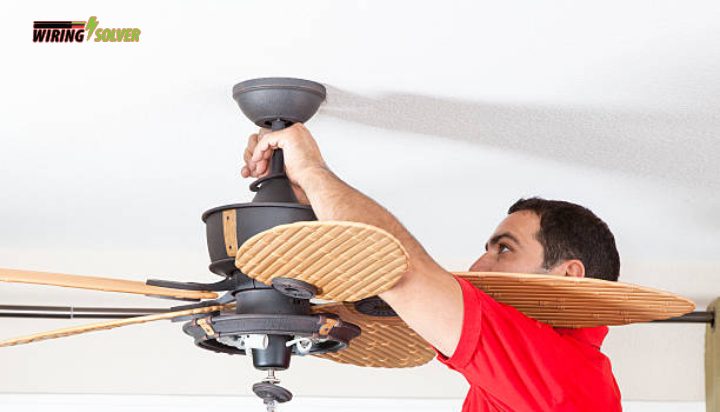
![Harbor Breeze Ceiling Fan Remote Not Working! [Solved]](https://wiringsolver.com/wp-content/uploads/2022/05/Harbor-Breeze-Ceiling-Fan-Remote-Not-Working.jpeg)
